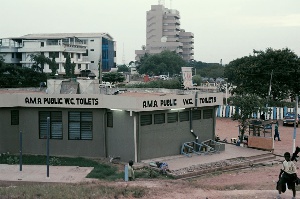Accra, April 26, GNA - Twenty per cent of Ghanaians, representing about six million of the population practice open defecation, because they do not have access to toilet facilities or did not know the health implications. Mr Tony Tsekpetse-Akuamoah, Environmental Health Technologist at the Environmental Health and Sanitation Directorate (EHSD) who made this known in Accra on Monday said sanitation coverage in the country improved by only three per cent in five years, spanning the 10 per cent in 2005 to 13 per cent in 2010.
He was speaking at the opening of a two-day workshop on Community Led Total Sanitation (CLTS), organised by Plan Ghana, a non-governmental community child-centred organisation in Accra on Monday. It is being attended by Plan Ghana officials drawn from its operational communities, representatives from selected district assemblies and non-governmental organisations on water and sanitation. The workshop is to build the capacity of participants to work within the context of national condition to support adoption of CLTS as a new strategy of addressing environmental sanitation and hygiene in the communities.
It is also aimed at collating experience and assess what other partners are doing to ensure environmental sanitation in the communities. CLTS is a community owned initiative which is creating the platform for communities to take up the responsibility to construct their own toilets and other sanitation structures to ensure their safety.
Mr Tsekpetse-Akuamoah said EHSD had reviewed its environmental sanitation policy and recommended adoption of the CLTS concept to ensure that every household had access to the facility for their safety. Mr Tsekpetse-Akuamoah called on government to ensure the speedy release of funds for the implementation of the concept.
Mr Samuel Paulos, Country Director of Plan Ghana, whose speech was read on his behalf said the workshop would enable the participants to find a common ground to streamline activities of Plan into the national strategies aimed at addressing issues of sanitation and hygiene in the communities. He said Plan Ghana believed that CLTS technology was the right way to address sanitation and hygiene because it was easy to adopt and maintain. Mr Martin Keijzer, Senior Water and Sanitation Advisor, Plan Netherlands, who undertook comprehensive studies on the CLTS concept, called for attitudinal change and awareness creation to enable people in the communities embrace the concept.
General News of Monday, 26 April 2010
Source: GNA

















